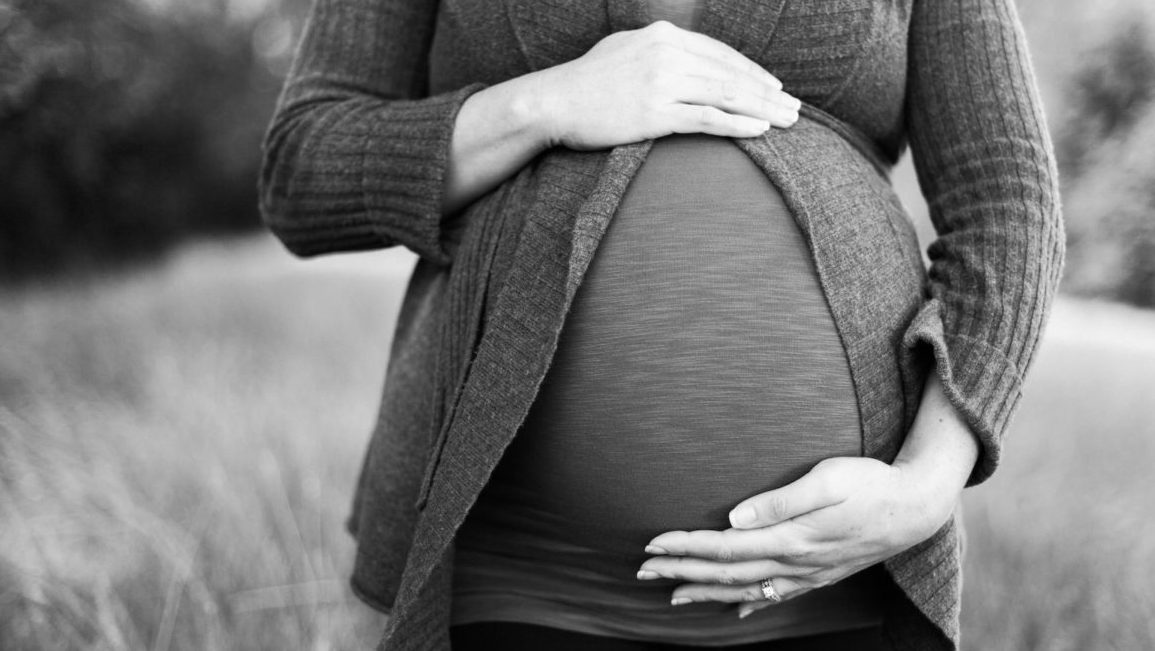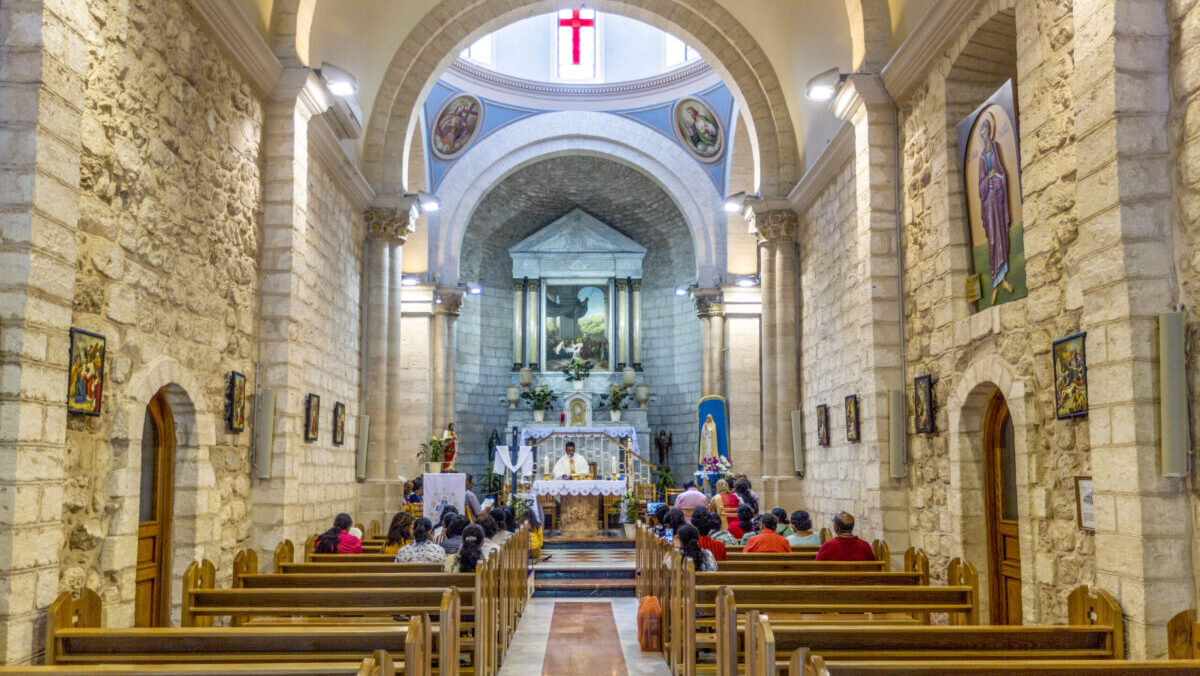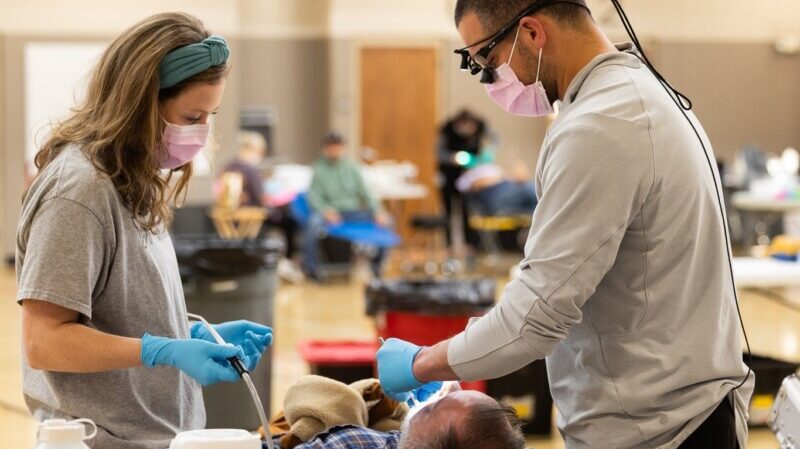“Pregnant? We will help!”
The blue and white billboard for First Step Women’s Center towers over a major thoroughfare in Springfield, Illinois. It’s designed to reach women in the state’s capital who are facing an unplanned pregnancy. The ad is also for out-of-staters who may be seeking an abortion in Illinois, home to the most permissive abortion policies in the Midwest.
For 15 years, First Step has worked to show women abortion isn’t their only option.
When the U.S. Supreme Court overturned Roe v. Wade last year, returning abortion to individual states to decide, the center’s audience shifted to include women from other states.
Advocates for abortion rights are urging women to seek abortions in what they call “haven states” like Illinois by funding travel and accommodations.
The ruling that overturned Roe effectively shut down abortion in many states across the South. But in Illinois, lawmakers codified Roe into law in 2019, ensuring abortion would remain an option in the state regardless of Supreme Court action.
On a map showing abortion policies, Illinois is the lone permissive state surrounded by states with more restrictions.
“We are getting requests for appointments from far away,” confirmed Elmi Patton, executive director of First Step. The center has recently seen patients from Missouri, and has referred patients from further away to clinics closer to them. First Step doesn’t provide abortions or refer women to abortion providers, but the center may pop up in a Google search for abortion in Illinois.
Post-Roe world
Patton and other life advocates are meeting the new normal of a post-Roe world with the same message as before, just for a wider audience. Her pregnancy center hasn’t seen an influx in patients yet, but they’re prepared to, she said. Along with the billboard, First Step is putting its printed materials in local nail salons and are working on getting them into hotels.
“They are predicting that Illinois will have a lot more abortions, but whether they would find us first … that’s what we pray,” Patton said.
Valari Veteto fields many calls that come down to that one question.
Veteto directs adoption ministry for Baptist Children’s Home and Family Services (BCHFS), headquartered in Carmi and near southern Illinois communities likely to be affected by new abortion clinics.
In fact, Veteto said, Carbondale is getting six new abortion clinics, including a mobile unit.
So, what do we do now?
A key response by pro-life advocates, Veteto noted, will be to increase visibility.
Like First Steps in Springfield, life advocates in the southern part of the state are trying to get their name out there so that their services are a go-to.
“We need more signs, we need more connections. I need to come talk to your youth groups,” she said.
Christians need to leverage community relationships and resources so that BCHFS and other ministries are able to talk with women about options other than abortion.
“Everybody’s got something they can offer this cause,” she said.
Veteto also believes there may be opportunity to work with abortion providers, in a sense.
“I do expect an increase in birth moms as the clinics start opening because not every girl who goes in for an abortion will qualify for an abortion,” she noted.
In Illinois, abortion is restricted to the time period before fetal viability, generally around 24 weeks.
Veteto said a 14-year-old in Illinois recently went to an abortion provider but was too far along in her pregnancy to go through with the procedure. She connected with BCHFS after she found their information through a friend.
“They can’t deny the fact that they can’t do an abortion on every girl that comes in,” she said. “In a sense they’re going to need us.”
Veteto wants to be a resource for abortion providers, an option they can offer to women in a crisis.
“The Lord will use anything that he has to for his glory, so if it comes down to turning the tables on that relationship and them using us, then I think that the Lord is absolutely capable of that.”
At GraceHaven Pregnancy Resource Clinic, project manager Regina Thompson is adamant that women understand the truth about abortion. The Mount Vernon clinic, also a ministry of BCHFS, opened in November 2020 to offer alternatives to abortion — pregnancy tests, ultrasounds, STI testing and treatment, and parenting/labor and delivery classes. GraceHaven also provides post-abortion recovery classes.
“We don’t refer for abortion, we don’t support abortion, we want a woman to know what she’s saying yes to if she’s considering a chemical abortion or the actual abortion procedure,” Thompson said.
“If a woman is contemplating abortion,” she noted, “or asks about the abortion pill, or wants to know if we will make a referral for abortion, here’s what I say to her: Would you consider another option?”
GraceHaven is ready to support women who choose another option, with training designed to help parents that also earns them credit to spend at an onsite boutique filled with baby gear.
Thompson estimates 70% of women who visit the center intend to parent their baby. But she also expects abortions to increase in Illinois. She noted GraceHaven’s close proximity to Fairview Heights, home to one of the state’s largest abortion clinics, and to Carbondale, where several new clinics are expected to open.
For GraceHaven and ministries like it, day-to-day operations haven’t changed much since the Roe decision —yet. But the increase of abortions in Illinois requires preparation now for a potential new onslaught of clients.
“We don’t want any client to ever come in and feel judged,” Thompson said. “We want them to know they’re loved. God has created them and he has created the baby inside.”
Engaging at the local level
For some churches and ministries in Illinois, the answer isn’t very different than it was before Roe was overturned.
For them it’s business as usual, with the recognition that shifting national dynamics may mean more opportunities to take a stand for life here.
When Crossroads Church in Centralia connected with their local pregnancy center in 2020, they heard about a need for a Bible study group.
Based on curriculum called Embrace Grace, the small groups are for women facing an unexpected pregnancy. Crossroads has since hosted four of the 12-week studies and will launch the next phase, Embrace Life, in early 2023.
Through the studies, Pastor Ronnie Tabor’s church has ministered to 13 women, two who accepted Christ. Three have been baptized at Crossroads. “Our church just really rallied around this,” he said. After the 12-week study, they host a churchwide baby shower for the moms-to-be.
“We’ve seen, over and over again, they’re just blown away by the love they’re experiencing,” said Tabor’s wife, Carrie.
Amanda Neibel directs Angels’ Cove Maternity Center in Mount Vernon. While not a pregnancy resource center, the home offers expectant mothers a safe place to stay during pregnancy.
Once the baby arrives, the mom and her child can prolong their stay while she gains skills and training needed for independence. The staff provides help with paperwork and college enrollment, Bible study, parenting education and counseling that helps residents work through past trauma.
“We want to help them work through those things so they can help their children too,” Neibel said.
In the year ahead, she hopes churches will partner with Angels’ Cove to build relationships with the residents, which happened less frequently during the pandemic. “Let’s get some mission teams in to spend time with us and the ladies and the kids,” she said.
There is one even more pressing need, though.
“The biggest thing is prayer. We need all the prayer we can get.”
Starting points
- Pray for life. Make prayer for pro-life issues a priority on your church and personal lists.
- Speak up. Let your lawmakers know you support life and the rights of the unborn.
- Support local organizations. Find and engage groups in your area that provide abortion alternatives. Invite speakers to share with the church.
- Explore new ministries. Read more about Embrace Grace and learn how to create a church environment where women facing unexpected pregnancies are welcome.
- Hold a baby shower. A church or class can hold a “baby shower” to gather supplies for the BCHFS ministries that assist pregnant women, mothers, and their babies.
Sanctity of Human Life Sunday is Jan. 22 in Southern Baptist churches.
EDITOR’S NOTE — This story was written by Meredith Flynn and originally published by Illinois Baptist State Association Newsjournal.










